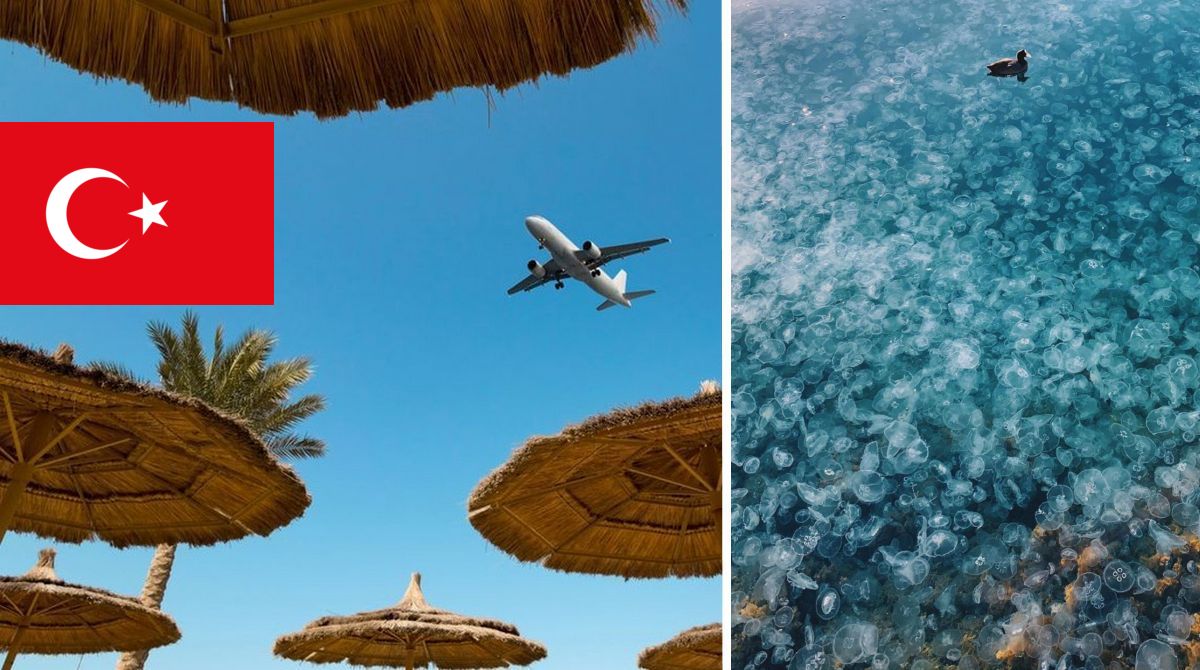Thousands of dangerous jellyfish have landed on the shores of the resort town of Antalya, Turkish media reported. Eyewitnesses said that due to the huge number of sea creatures, the beaches began to appear white, and experts warned that approaching animals and, moreover, touching it can be very dangerous.
According to the Turkish Faculty of Fisheries, these are white jellyfish travelers, scientifically – Rhopilema Nomadica. A strong storm brought them from the Red Sea to the Turkish coast in the area of the popular cities of Belek and Serik in the province of Antalya.
According to Dr. Gekoglu, a professor at the University of Akdeniz University, the jellyfish deviated from their course due to a strong northeast wind, which caused a strong current, and as a result, thousands of colonies came to the coast. Entrance gate for sea creatures living in the warm Red Sea – Suez Canal.
“The reason we saw it is that there is still a very strong wind in Antalya. Therefore, surface waters are picked up by the north wind and pull the jellyfish up. The wind pulls water from the bottom, creating a current directed to the shore. In this case, there was suction of water from the trajectory of the main flow to the Gulf of Antalya. That’s why Belek and Serik were overwhelmed by thousands of jellyfish,” the expert explained.
The problem is that this is a kind of dangerous person. Jellyfish-traveler belongs to the flowering family. Representatives of this family attack their prey (plankton) and defend themselves with the help of shooting cells containing real poisoned arrows. Dead jellyfish are also dangerous. They automatically inject the poison into the skin using microscopic syringe needles located on the tentacles, leading to burns or poisoning.
Therefore, Turkish experts urged tourists to beware of these animals and not to touch them, no matter how impressive they may seem. By the way, their weight can reach 20 kilograms.
However, there is good news: the transition of jellyfish will be completed in May and June. This means that their density on the coasts of Turkish resorts in the summer season will decrease significantly, experts said.

